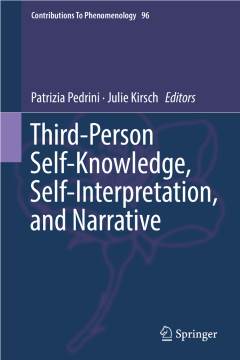Repository | Book | Chapter

(2018) Third-person self-knowledge, self-interpretation, and narrative, Dordrecht, Springer.
Causal inference in the clinical setting
why the cognitive science of folk psychology matters
Andrew Sims
pp. 191-215
In psychodynamic practice, irrational thought and action is explained within a framework that licenses a range of personal-level psychological attributions that are not ordinarily present in the quotidian interpretation of others. So, the thought goes, psychodynamic explanation is best construed as a theoretical extension of ordinary personal-level psychology, or folk psychology. If this view is correct, I argue, then it commits the psychodynamic explainer to some fairly weighty commitments with respect to the sub-personal explanation of folk psychological — or mindreading — capacities. For instance, it commits the psychodynamic explainer to the domain-generality and cognitive-extensibility of these capacities. Does the present state of affairs in the relevant sciences bear these commitments out? A discussion of dual-process theories of mindreading seems to show that although strong conclusions cannot be drawn at present, a complete model at the sub-personal level has the potential to add more epistemic detail to the standard philosophical story and even to epistemically vindicate key clinical phenomena (like counter-transference). On the other hand, it also has the potential to invalidate the commitments of the psychodynamic explainer, assuming she wishes to appeal to the "extension of folk psychology" argument that causal inference is warranted in the clinical setting.
Publication details
DOI: 10.1007/978-3-319-98646-3_11
Full citation:
Sims, A. (2018)., Causal inference in the clinical setting: why the cognitive science of folk psychology matters, in P. Pedrini & J. Kirsch (eds.), Third-person self-knowledge, self-interpretation, and narrative, Dordrecht, Springer, pp. 191-215.
This document is unfortunately not available for download at the moment.



